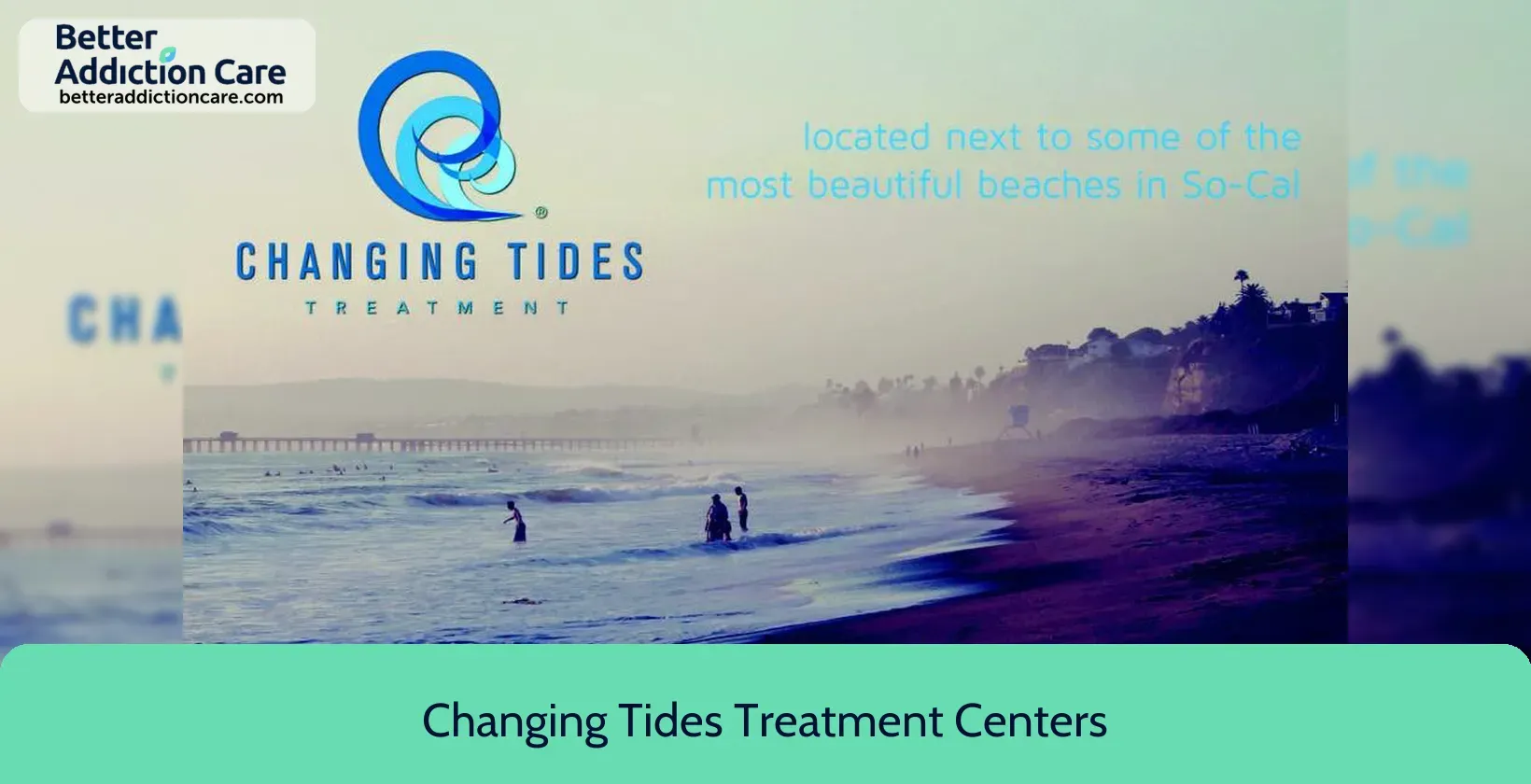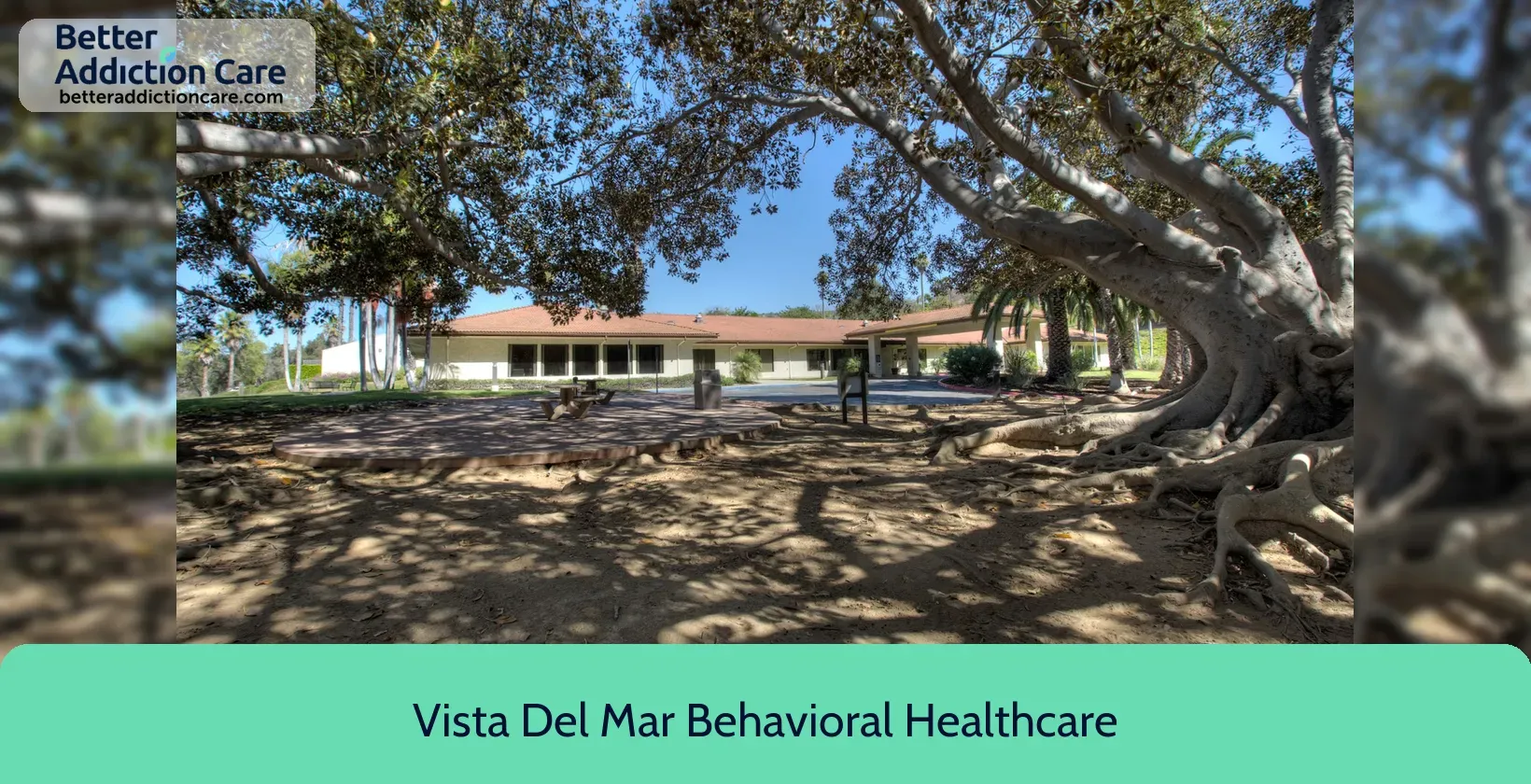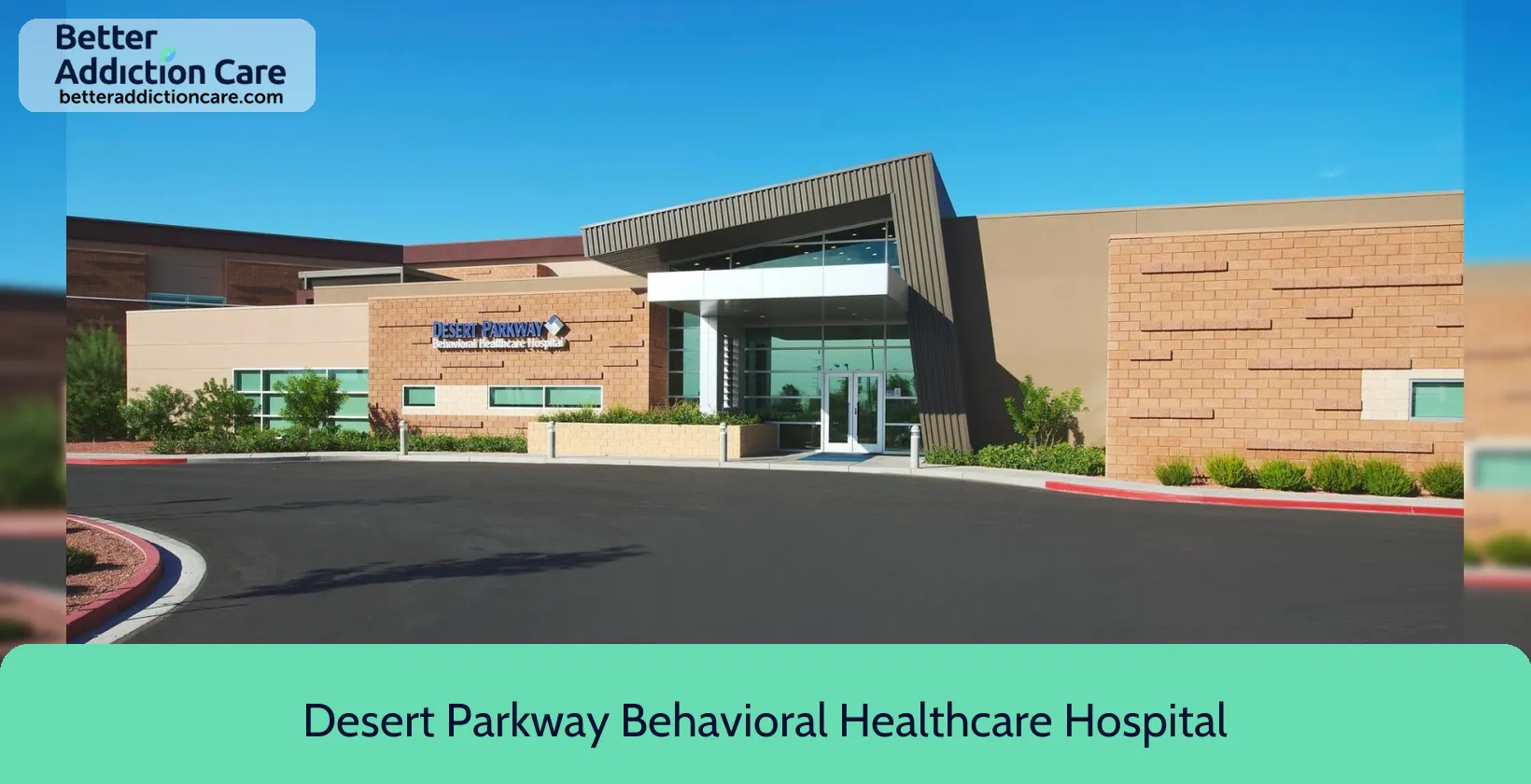Vista Del Mar Behavioral Healthcare Hospital
Overview
Vista Del Mar Behavioral Healthcare Hospital, a private rehabilitation facility in Ventura, California, is committed to the comprehensive treatment of mental health disorders. Set against a tranquil landscape with ocean views, the hospital offers a variety of programs that are designed for both adolescents and adults. The hospital is dedicated to providing individualized treatment in a structured environment that facilitates long-term recuperation.
As clients commence the detoxification process and progress through various levels of care, the hospital's inpatient care program provides them with a highly supportive environment that is free of potential distractions. They are under 24-hour medical supervision. Through a combination of individual, group, and family therapies, this program addresses both mental health issues and substance abuse. It is further supported by medication management, life skills training, and recreational activities that are intended to promote personal development and socialization.
The Partial Hospitalization Program (PHP) and Intensive Outpatient Program (IOP) at Vista Del Mar offer intensive support to clients who require a more flexible treatment option, while enabling them to continue with their daily responsibilities. The PHP provides a structured schedule of group and family therapies five days a week, while the IOP emphasizes symptom management with sessions three times a week, specifically designed for individuals transitioning from higher levels of care to more independent self-care.
The hospital also specializes in dual diagnosis care, which involves the treatment of clients who have both substance use conditions and mental health disorders. The objective of this program is to mitigate the risk of recidivism by addressing the underlying issues that contribute to addiction by combining the 12-step model with therapeutic techniques that address the complexities of co-occurring disorders. Vista Del Mar in addition provides a Military Support Program that concentrates on post-traumatic stress and other conditions that affect active-duty service members, veterans, and their families.
The Illness Management and Recovery (IMR) approach, which is an evidence-based treatment model, is a commitment of Vista Del Mar Behavioral Healthcare Hospital. This approach assists patients in establishing meaningful objectives and offers education on mental health conditions, coping mechanisms, and strategies for relapse prevention. The facility's detoxification and chemical dependency services prioritize a community-based treatment approach, which cultivates a supportive environment for individuals who are striving to overcome addiction..
Vista Del Mar is dedicated to the community and actively participates in outreach programs and events year-round, strengthening its dedication to delivering high-quality mental health care to a broader population. Aetna, Compcare, Healthsmart, Value Options, and Multiplan are among the insurance plans that the facility accepts, thereby guaranteeing that diverse clienteles have access to care.
Vista Del Mar Behavioral Healthcare Hospital is accredited by The Joint Commission, which is indicative of its commitment to the most stringent standards of patient safety and care. This acknowledgment emphasizes the hospital's commitment to providing exceptional, compassionate care and to perpetually enhancing the outcomes of individuals on their path to mental wellness and recovery.
Vista Del Mar Behavioral Healthcare Hospital at a Glance
Payment Options
- Cash or self-payment
- Medicaid
- Federal military insurance (e.g., TRICARE)
- Medicare
- Private health insurance
Assessments
- Comprehensive mental health assessment
Age Groups
- Children/adolescents
- Young adults
- Adults
- Adolescents
Operation
- Private for-profit organization
Highlights About Vista Del Mar Behavioral Healthcare Hospital
6.69/10
With an overall rating of 6.69/10, this facility has following balanced range of services. Alcohol Rehabilitation: 8.00/10, Drug Rehab and Detox: 6.00/10, Insurance and Payments: 6.40/10, Treatment Options: 6.36/10.-
Alcohol Rehabilitation 8.00
-
Insurance and Payments 6.40
-
Treatment Options 6.36
-
Drug Rehab and Detox 6.00
Accreditations
The Joint Commission:

The Joint Commission accreditation for addiction and behavioral health signifies that a facility has met rigorous standards in patient care, treatment, and safety. This recognition assures patients and professionals of the facility's commitment to providing high-quality, evidence-based care in the fields of addiction and behavioral health, fostering trust and confidence in their services.
Effective date: 04/02/2015
Registration: 1021
Treatment At Vista Del Mar Behavioral Healthcare Hospital
Treatment Conditions
- Mental health treatment
- Co-occurring Disorders
- 24-Hour Clinical Care
Care Levels
- Intensive outpatient treatment
- Aftercare
- Outpatient
- Hospital inpatient treatment
- Partial Hospitalization Program
Treatment Modalities
- Group counseling
- Individual psychotherapy
- Family counseling
- Marital/couples counseling
Ancillary Services
Special Programs
- Children/adolescents with serious emotional disturbance (SED)
- Persons 18 and older with serious mental illness (SMI)

Additional Locations
Get Help Now
Common Questions About Vista Del Mar Behavioral Healthcare Hospital
Contact Information
Other Facilities in Ventura

6.50

6.71

6.94

6.90
DISCLAIMER: The facility name, logo and brand are the property and registered trademarks of Changing Tides Treatment Centers, and are being used for identification and informational purposes only. Use of these names, logos and brands shall not imply endorsement. BetterAddictionCare.com is not affiliated with or sponsored by Changing Tides Treatment Centers.




